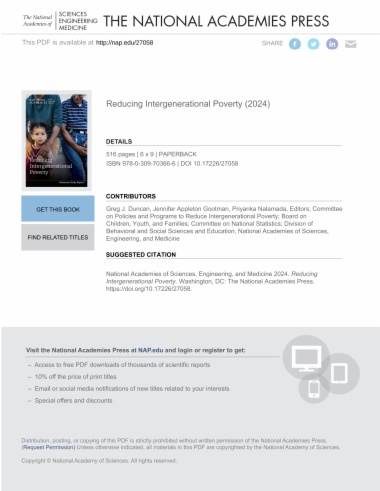

Experiencing poverty during childhood can lead to lasting harmful effects that compromise not only children's health and welfare but can also hinder future opportunities for economic mobility, which may be passed on to future generations. This cycle of economic disadvantage weighs heavily not only on children and families experiencing poverty but also the nation, reducing overall economic output and placing increased burden on the educational, criminal justice, and health care systems.
Reducing Intergenerational Poverty examines key drivers of long- term, intergenerational poverty, including the racial disparities and structural factors that contribute to this cycle. The report assesses existing research on the effects on intergenerational poverty of income assistance, education, health, and other intervention programs and identifies evidence-based programs and policies that have the potential to significantly reduce the effects of the key drivers of intergenerational poverty. The report also examines the disproportionate effect of disadvantage to different racial/ethnic groups. In addition, the report identifies high-priority gaps in the data and research needed to help develop effective policies for reducing intergenerational poverty in the United States.